ADAPT Engages in AI Tribes Mini-Summit, Exploring Challenges and Opportunities in AI
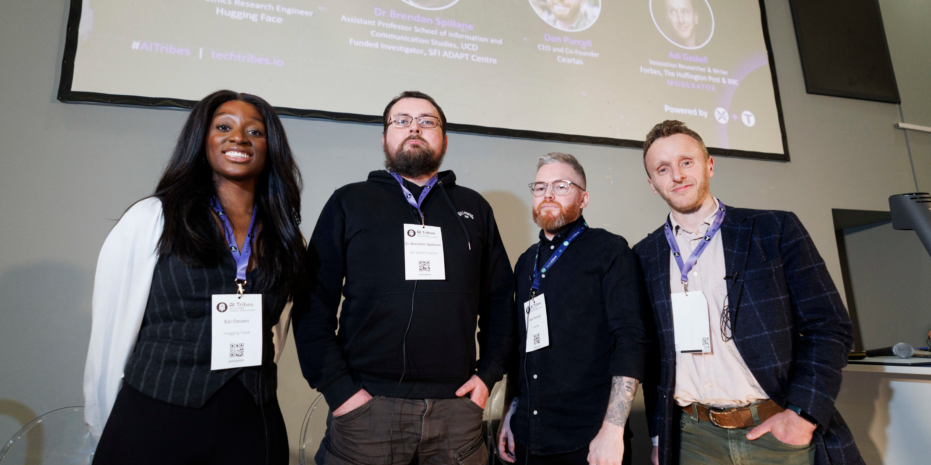
Last month, ADAPT participated in the mini-summit AI Tribes, where experts in cybersecurity, privacy, and artificial intelligence governance, along with founders of start-ups, convened to exchange insights into the challenges and opportunities presented by AI. ADAPT Director Prof. John Kelleher and ADAPT UCD academic Dr. Brendan Spillane was prominently featured in the program, shining a spotlight on their ADAPT research.
Powered by the Dublin Tech Summit, AI Tribes fostered an environment of connection and collaboration for individuals in the areas of AI, data, and machine learning. At the event, the ADAPT team operated a booth providing attendees with the opportunity to engage with our researchers and Commercialisation team. Among the highlights was the chance for attendees to interact with Furhat, a ‘conversational robot’ tool designed for experimenting with human-computer interactions.
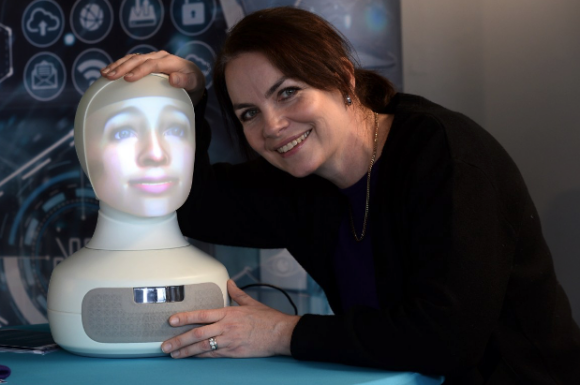
Photo: Olivia Waters with Furhat [source]
Olivia Waters, ADAPT’s Head of Impact and Growth Strategy, was interviewed in The Sunday Times, discussing the potential applications of Furhat, such as assisting the elderly in care homes, translating text, or serving as a hotel concierge, as mentioned by Senior Research Engineer on Precision ALS Matthew Nicholson in the Irish Times. However, Waters emphasised that while a conversational robot could augment staff and “free them up” for other tasks, it should not be seen as a substitute for human care workers.
Dr. Brendan Spillane, Assistant Professor at the School of Information and Communication Studies in UCD, participated in a panel dedicated to exploring and addressing disinformation, including the latest detection methods and countermeasures developed to tackle these intricate digital falsehoods. Entitled “Disinformation Is Real: Solving the Deep Fake Dilemma,” the panel dived into the technological advancements driving the creation of deep fakes and the challenges they present in disseminating false information. Dr. Spillane was joined by fellow panellists Ezi Ozoani, AI & Ethics Research Engineer at Hugging Face, and Dan Purcell, CEO and Co-Founder of Ceartas, to discuss. The panel was moderated by Adi Gaskell, an Innovation Researcher and Writer.
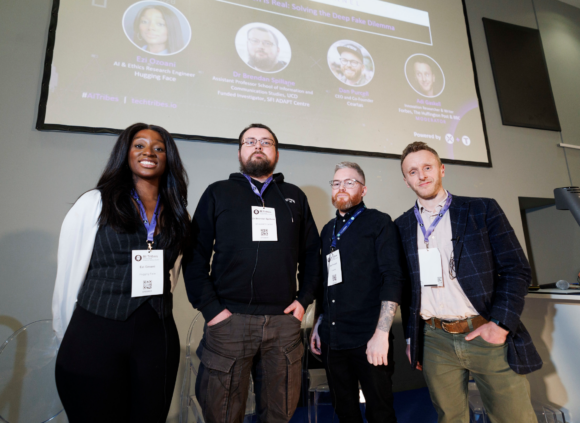
Photo: (L-R) Ezi Ozoani, Brendan Spillane, Dan Purcell and Adi Gaskell
Concluding the event, with a hybrid fireside discussion, were ADAPT Director Prof. John Kelleher and Jack McCauley, Innovator in Residence at Berkeley University and Co-Founder of Oculus. Titled “The Evolution of Neural Networks,” the discussion explored the parallels and intersections between neuronal networks in the human brain and the data processing capabilities of artificial neural networks.
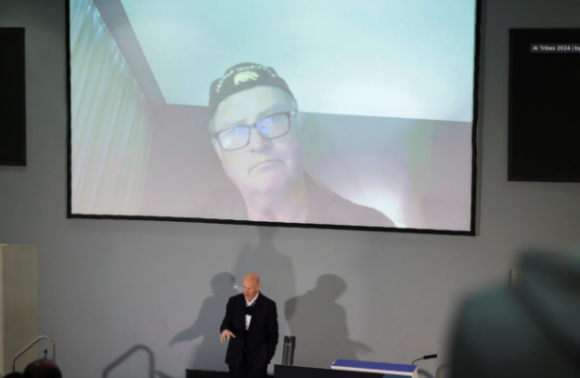
Photo: Prof. John Kelleher presenting in person with Jack McCauley presenting online.
If you missed AI Tribes, access recordings of the event from their Youtube here.
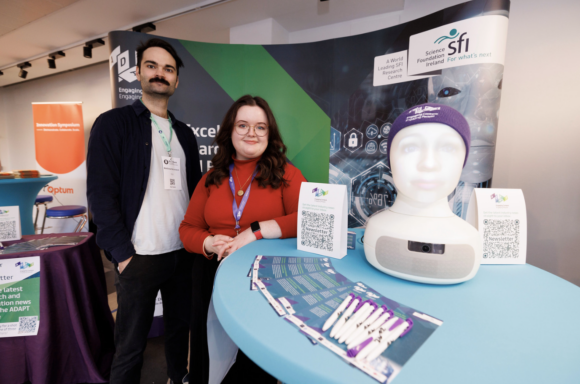
Photo: Senior Research Engineer, Matthew Nicholson, and Events, Marketing & Social Media Coordinator, Alex Irwin, at the ADAPT booth at AI Tribes.
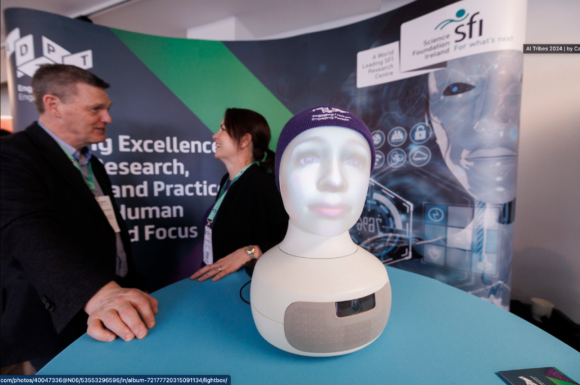
Photo: Commercial Business Manager, Edmond O’Connor, and Head of Impact and Growth Strategy, Olivia Waters, at the ADAPT booth at AI Tribes.







